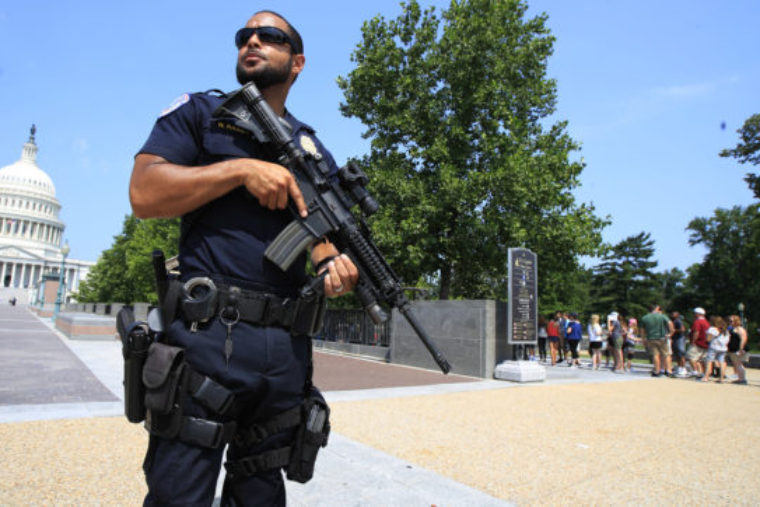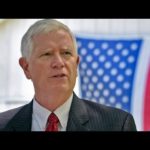To enter the U.S. Capitol, one must walk through a metal detector, flash an ID badge, put any bags or purses through a scanner and pass several armed police officers. Outside those marble halls, however, hundreds of members of Congress and their staff have no security whatsoever—unless they hold one of a handful of leadership positions.
“When we’re off Capitol Hill, we don’t have anyone watching our backs,” Sen. Tim Kaine (D-VA) observed Wednesday. “It’s not hard for one person who is unhinged to do something pretty dangerous.”
The only reason Capitol Police officers were on duty at congressional Republicans’ baseball practice Wednesday morning at a public field in Alexandria, Virginia when a gunman opened fire was the presence of GOP Whip Rep. Steve Scalise (R-LA), who was shot and remains in critical condition in a Washington, D.C. hospital.
“If Steve Scalise’s detail had not been there, God, it could have been truly horrible, even worse,” a subdued and somber Sen. Martin Heinrich (D-NM) told TPM.
As Congress reeled after the shooting, several members voiced a desire for additional security measures. One Republican lawmaker vowed to start carrying his firearm “in my pocket from this day forward” (carrying a gun into the Capitol is prohibited). But many other members from both parties warned against tightening security in response to the morning’s tragedy, stressing the importance of allowing free and open interactions with the public—even angry constituents.
by Alice Olstein



